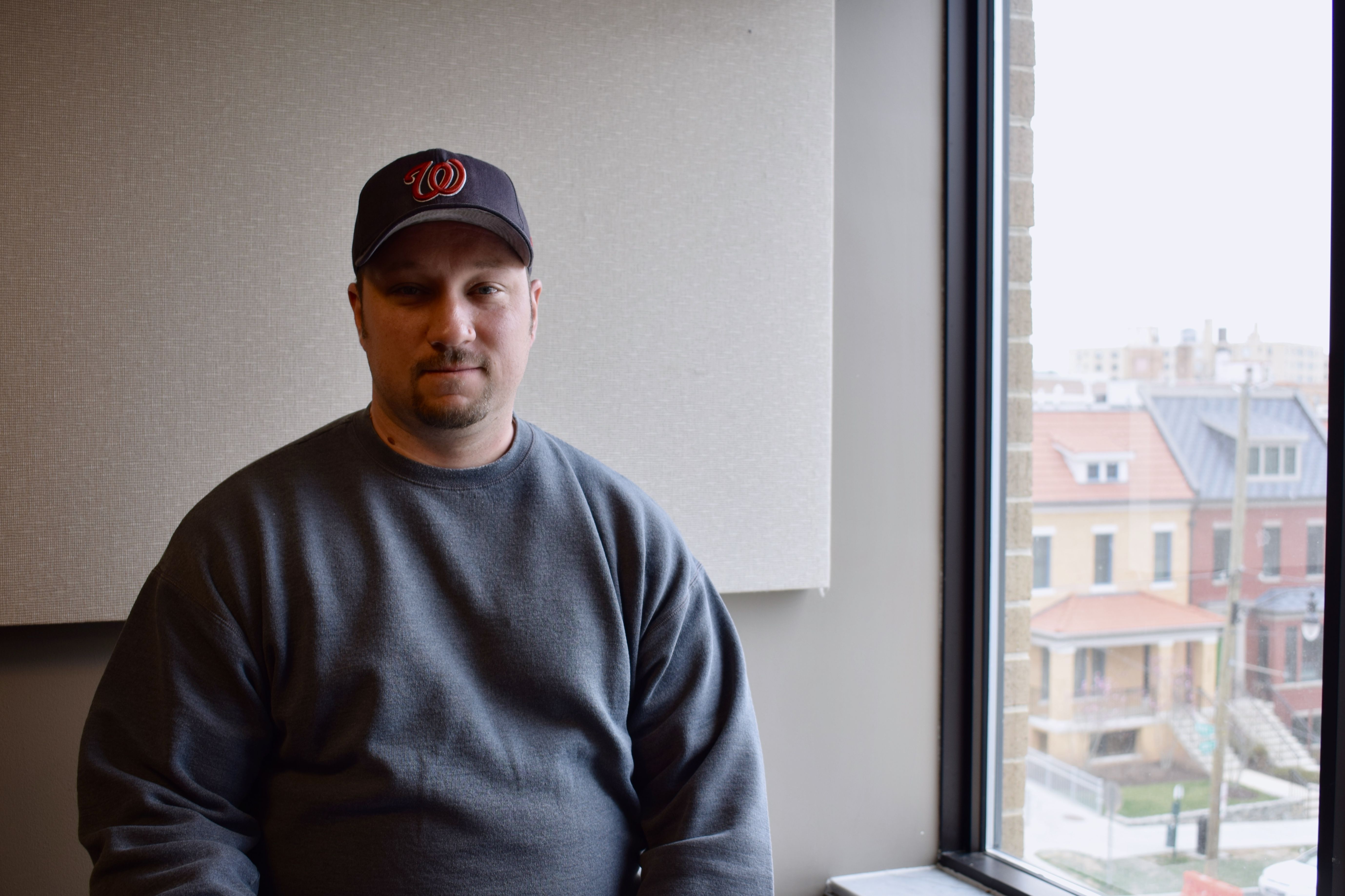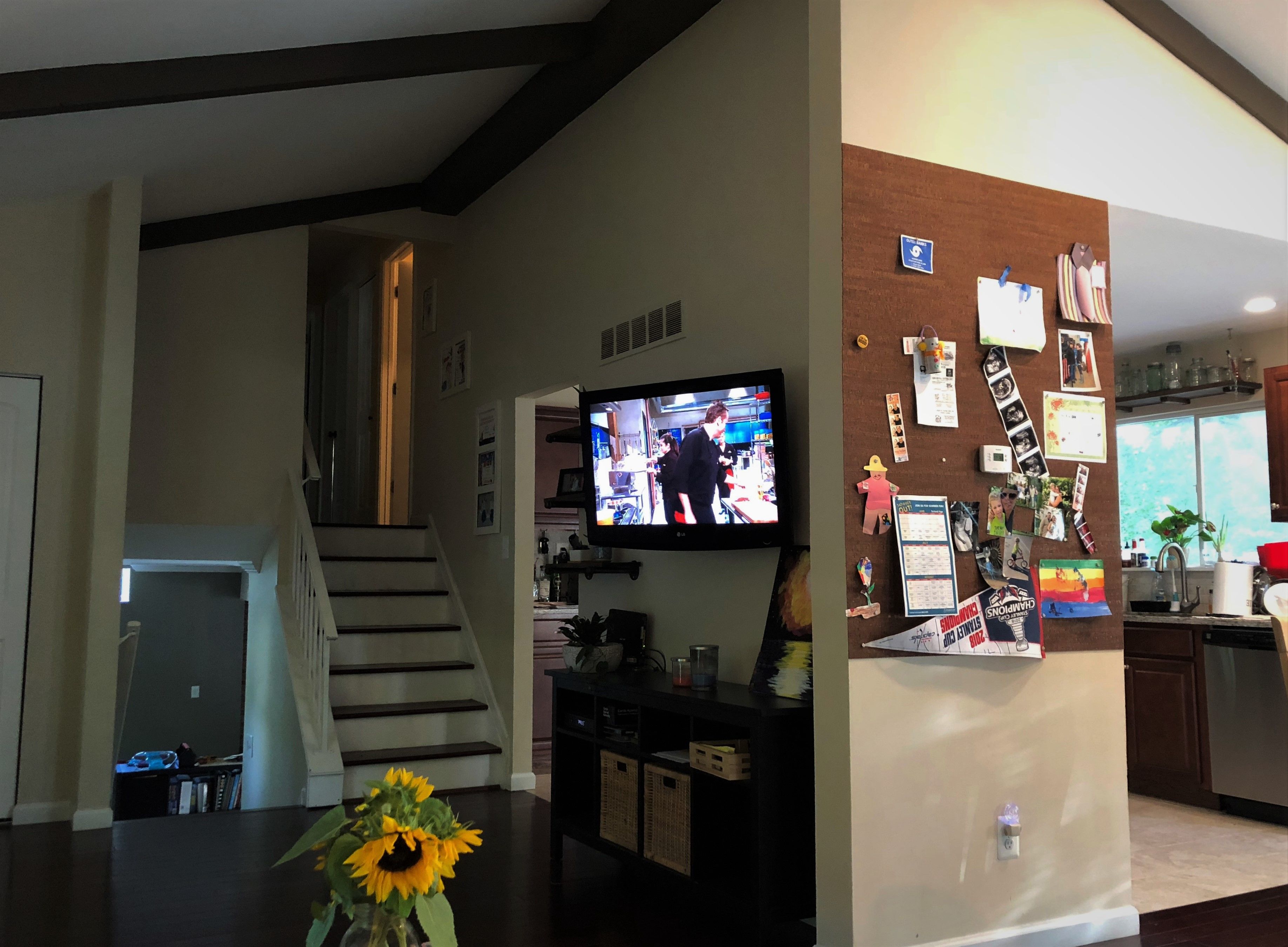In our three-part special report, Money On Our Minds, WTOP takes a close look at the financial situation of millennials in the D.C. area and how they make ends meet, with a focus on student loan debt, homeownership and retirement planning.
WASHINGTON — Millennials living in metro areas, paying steep rents and tackling student loan debt might not have retirement planning in the forefront of their minds.
In fact, 66 percent of millennials in the workforce have nothing saved for retirement, according to a report this year from the National Institute of Retirement Security, which used census data.
But that doesn’t mean they’re not thinking about it at all.
Though plenty of millennials have not started to save for retirement, when they have access to a 401(k) plan, their participation skyrockets.
Kathy Stokes, AARP senior adviser on financial resilience, said 90 percent of millennials participate in a 401(k) plan when they’re eligible for it.
Jennifer Juang, 24, works as a graphic designer in D.C., and although she doesn’t know too much about the ins and outs of her workplace’s 401(k) plan, she is contributing.

“I know I’m currently putting a certain percentage of my salary directly toward that, but it feels very passive and I don’t like that. If I had more income that I could feel more flexible with, then I would definitely feel more aggressive in my investments,” she said.
Juang said she knows that it’s better to start saving for retirement sooner than later, even if it seems so far away.
She is part of a retirement plan that targets its contributors retiring by 2050, but she is unsure that she’ll make that goal with the amount she is contributing.
“I don’t know at which age I’ll actually retire and I don’t know at which age I’ll actually buy a house because everything feels so bleak compared to adults you might ask advice from, Juang said. “When they were our age, they already were looking at houses because it was actually an option for them. But I think that’s just the millennial struggle. Everything’s more expensive.”
Despite suggestions that millennials might be wasting their money on avocado toast and lattes, millennial personal finance expert Stefanie O’Connell said this generation actually has pretty good financial habits.
“Millennials are actually saving a greater portion of their income than baby boomers or Gen Xers, but they don’t have a lot to save,” O’Connell said.
Student loan debt, underemployment, lower salaries and higher health care costs are huge barriers for many millennials’ financial security, O’Connell said.
“Especially in big cities like D.C., they’re contending with these skyrocketing living costs, so it makes the capacity to save a significant amount, or invest, or to build wealth in a meaningful way long-term increasingly a challenge. Even if you do have a good money habit, you might not be able to set that much aside.”

A considerable amount of millennials also work in the gig economy, which means they’re locked out of employer benefits, Stokes said.
“There’s a large share of millennials who work part time or who are low tenure, meaning less than a year in the workforce. And those two things go against them in terms of eligibility in a 401(k) plan,” she said.
“If you’re part time, many plans don’t allow you access. And if you’re under one year, you typically aren’t eligible to participate, or you are but aren’t eligible for the match, and there’s sometimes confusion in that.”
Since the 1990s, a majority of employers have shifted from a traditional pension system of defined benefits into a 401(k) plan, Stokes said.
While that shift is affecting other generations, it also means most millennials only know a workforce with a 401(k) plan.
“They don’t know a lot — the mechanics of how a 401(k) plan works are somewhat of an enigma to this generation,” Stokes said. “There’s a lack of financial education in high school and colleges, and so they get to these plans and they just don’t really know what to do with them. They don’t understand how the match works.”
Entering the workforce during a recession has also impacted millennials’ wages, which can affect their ability to save.
“There’s been a lot of economic research that suggests that for those individuals beginning their career at a time when the economy is weak has very long-lasting effects for their earnings, for the hours that they work, and also in terms of other life choices — so not just about their economic participation but also about their choices for where to live, when to get married, all those sorts of things as well,” said Tara Sinclair, associate professor of economics at George Washington University.
D.C. firefighter Jeremiah Voigt, 35, has a pension through his job but he admits he doesn’t know the specifics of it. His wife also has a 401(k) through her job in property management because he doesn’t think they’ll be able to survive solely on his retirement.

For a while, they didn’t have extra money to save because of the long journey they went through buying a home, he said.
In 2007, Voigt and his wife bought a home in Greenbelt, Maryland.
But a year later, during the recession, they lost more than half the value of it and were stuck in the 1,000-square-foot town house with a baby and a dog until 2015 when the housing market rebounded.
The search for their next home took them all the way to Columbia, Maryland.
Voigt doesn’t plan on moving again any time soon and he is happy with the location and the access to a good public school system for his son.
Now, Voigt feels he can start planning for the future.
“I would like to start learning how to invest and start doing some investing. We haven’t had extra income for a long time. Most of it has gone into getting the house that we want and being in the area we want. So, we have savings, but I won’t say we have enough savings,” he said.
“We were paycheck to paycheck for a long time,” he added. “I won’t say we’re financially savvy, but we’re comfortable enough that we can do good guesstimates and we have money to put away now.”
How to start saving for retirement now
Stokes stresses the importance of starting to save for retirement as early as possible because the earlier you start, the less of your paycheck you’ll have to put away toward your “future paycheck,” she said.
“If you wait, that 15 percent is going to become 20 percent or 25 percent, and pretty soon most of your income is going to have to go into supporting your future income in retirement,” Stokes said. “That just doesn’t work for anybody.”
O’Connell suggests that to get younger people thinking about retirement planning, there needs to be a sense of urgency.
She suggests reframing the plan into five-year chunks.
“People talk a lot about retirement in personal finance, and that’s not really compelling when you’re in your 20s and 30s. It just feels like some completely distant and inaccessible future. So, I say, let’s start with a shorter timeline. What do you want to do in five years? And get really specific.”
“Once you’re clear on what that vision looks like for yourself, start putting a price tag on it, because you know those things cost money if you want to buy a house, if you want to start a family, or if you want to start a business. All of those things come with a price tag.”

According to O’Connell, one misconception millennials have with retirement planning is that a lot of money is needed to start.
She said the easiest way to start is to take advantage of a company’s 401(k) plan early on, or open an individual retirement account and contribute to it. Then, contribute more when you’re able to.
“Time is the greatest asset when it comes to building significant assets in the long term. More than the amount you contribute, the amount of time you invest is the best thing for maximizing your gains,” O’Connell said.
Another misconception, according to O’Connell, is that you have to be a “supersmart expert” about finances to start. She suggests turning to the host of online resources that can help.
“We might not have a lot of money, but we have access to resources in a way that’s really unprecedented,” she said.
AARP has plenty of online resources, such as an interactive “digital retirement coach” that asks questions about current saving habits to help plan for retirement. They also offer advice on how to choose a financial adviser if a person is in a position to do so.
Besides O’Connell’s website, there are a number of millennial-run financial blogs and podcasts, such as the “Bad With Money” podcast, and the websites “My Fab Finance” and “The Financial Diet.”
Another reason to plan early

The sheer number of millennial finance blogs also seems to parallel, perhaps, the uncertainty of financial security not only now but in the future.
The Social Security Trust Fund is expected to be depleted by 2034, and even baby boomers are staying in the workforce past when they’re first eligible for retirement.
Stokes said that if it’s not amended between now and 2034, payments could potentially be cut back by a quarter.
That cut would not only affect the generation that is currently collecting benefits but also future generations that are contributing but are not yet relying on Social Security.
“Millennials currently don’t believe that Social Security is going to be there for them,” she added.
A 2017 GenForward University of Chicago survey found that even though the majority of millennials are not at all confident about the future of the Social Security system, most of them still plan on relying on it a little in their retirement.
So it’s important that millennials are building their wealth in some way, even if it’s not through the traditional path of homeownership, O’Connell said.
“I recommend building wealth through a diversified investment strategy. Not to say homeownership can’t be right for some people, it absolutely can be, but I think that it’s a myth that it’s the only way to build wealth.”
Women and retirement planning
While millennials may not have extra income to put aside for savings and retirement, O’Connell said they need to be more vigilant in asking for raises at work, especially women.
“I think the stakes are too high for women not to be taking charge of their finances, not just from a salary perspective but as a whole. We need to be much, much more aggressive; we stand to lose a lot more.”
More older people living in poverty are women, O’Connell said. For women who decide to become mothers and take time off work, they’re missing out on a substantial amount of earnings.
“By asking for a raise, you’re not only paving the way for yourself, you’re paving the way for the woman who comes after you,” she added.
Stokes said the gender pay gap will have consequences on women’s retirement savings.
“More women tend to work in areas of the economy where they don’t have access to employer-based plans. It’s a significant issue,” she said.
O’Connell hopes to see some changes to the structure of employment in the U.S.
“I think on a policy level, we need to create systems that address this lack of existing financial infrastructure for people and address the reality that people are going to now go through many career changes in their lives. And they’re going to now have income shocks, meaning there are periods of time where their income either drops to nothing or experiences a significant decrease because of a job change, because we’re no longer living in a world of 40-year careers or 40 years at one job.”
Stokes added that there needs to be a plan for people who do not work full time.
“As we’re sticking to the 401(k) universe and there’s no chance we’re going back to the traditional defined benefits pension plans, you’ve got to make the 401(k) plan work for all generations,” she said.
While millennials’ financial situations may seem hopeless, one thing that may help is being more intentional with your money and facing the numbers, O’Connell said.
“It’s the simplest mindset shift, but it’s also really tough to get there. Once you do it, you will see your life change dramatically for the better. And from there, your progress might feel slow, but celebrate every single step in the right direction, because that’s what’s going to keep you motivated $1 at a time as you pay off a debt, or as you build savings, or as you build your investments.”
“Where you are today does not determine where you can end up,” she added. “You get to dictate what’s next.”
Juang still feels as if she and many other millennials are left to their own devices on something as serious as retirement and other important financial decisions.
“I think maybe with our generation or the generation after us, all these big decisions will just be delayed by a few years,” she said. “I don’t know if what I’m doing is right. I just feel like I’m doing what I can with what I know.”
More from the special report, Money On Our Minds:
- Part 1: Millennials attempt to stay afloat amid student loan debt
- Part 2: Student loan debt, wealth divide harming millennials’ homeownership dreams











